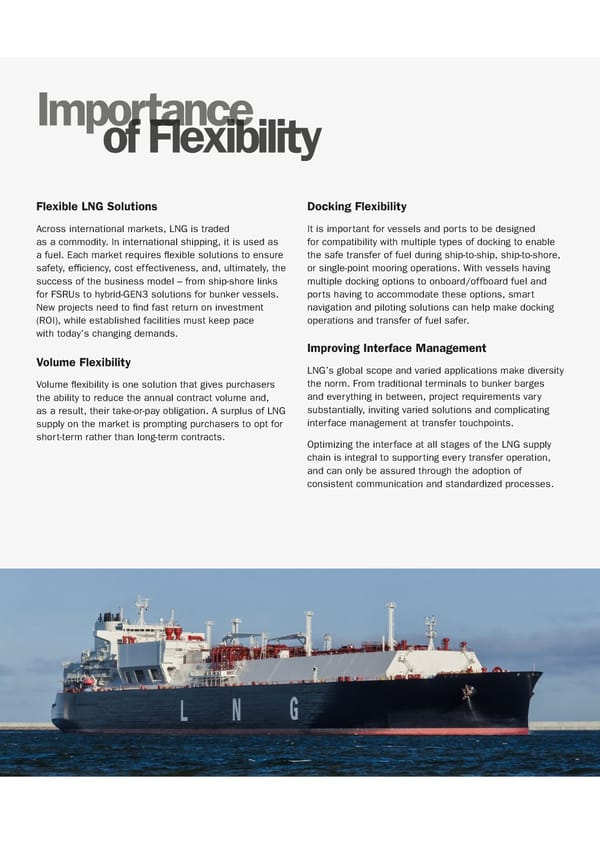Importance of Flexibility Flexible LNG Solutions Docking Flexibility Across international markets, LNG is traded It is important for vessels and ports to be designed as a commodity. In international shipping, it is used as for compatibility with multiple types of docking to enable a fuel. Each market requires flexible solutions to ensure the safe transfer of fuel during ship-to-ship, ship-to-shore, safety, efficiency, cost effectiveness, and, ultimately, the or single-point mooring operations. With vessels having success of the business model – from ship-shore links multiple docking options to onboard/offboard fuel and for FSRUs to hybrid-GEN3 solutions for bunker vessels. ports having to accommodate these options, smart New projects need to find fast return on investment navigation and piloting solutions can help make docking (ROI), while established facilities must keep pace operations and transfer of fuel safer. with today’s changing demands. Improving Interface Management Volume Flexibility LNG’s global scope and varied applications make diversity Volume flexibility is one solution that gives purchasers the norm. From traditional terminals to bunker barges the ability to reduce the annual contract volume and, and everything in between, project requirements vary as a result, their take-or-pay obligation. A surplus of LNG substantially, inviting varied solutions and complicating supply on the market is prompting purchasers to opt for interface management at transfer touchpoints. short-term rather than long-term contracts. Optimizing the interface at all stages of the LNG supply chain is integral to supporting every transfer operation, and can only be assured through the adoption of consistent communication and standardized processes.
 TM&I LNG Flexibility Factor Report Page 10 Page 12
TM&I LNG Flexibility Factor Report Page 10 Page 12